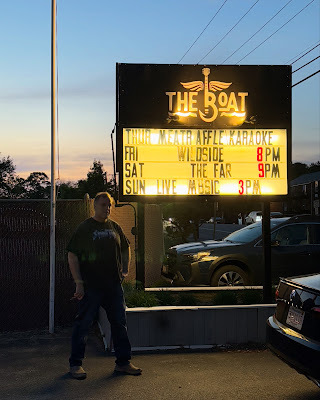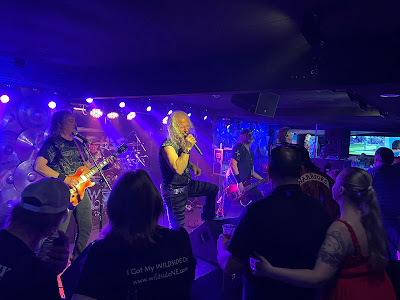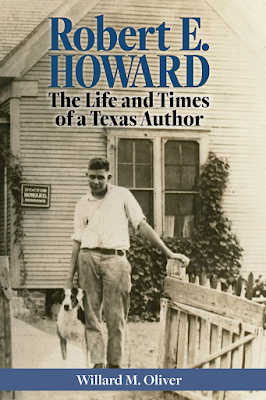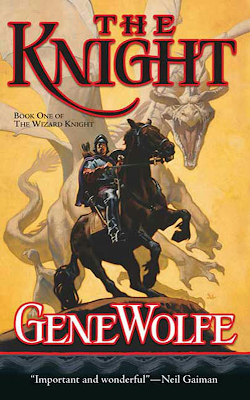Brian Murphy's Blog, page 6
May 17, 2025
We are called to live: A night with Wildside in Dracut MA
 Take a ride on the Wildside. Many/most 50+ year-old men were probably at home watching the Celtics playoff game last night. I was called back to the 1980s, and fantasy, and a late night with Wildside.
Take a ride on the Wildside. Many/most 50+ year-old men were probably at home watching the Celtics playoff game last night. I was called back to the 1980s, and fantasy, and a late night with Wildside.I decided on the spur of the moment to see an 80s hair band tribute. They were playing at a place called The Boat in Dracut, where I’d never been. I felt the call. On Thursday I texted my buddy Wayne, whom I’ve known since grade school and has been my wingman at countless metal shows. Yesterday he let me know—he was in. The night was on.
I never go to Dracut. I have never had a need to go to this odd town far off any major interstate, accessible only by driving through 20 minutes of woods and farmland. Which feels like undiscovered Lovecraft country in a state this small. I navigated past rusted grain silos and empty fields and then battered mill buildings and then I was there.
The Boat as it turns out is located on the shore of Mascuppic Lake. To be frank it looks like shit on the outside, a haphazardly maintained concrete bunker with a weathered deck. You have to pass through a steel door to enter.
 Meat Raffle ... and WildsideI knew I was in for a Spinal Tap sort of evening when I pulled into the parking lot, cut the engine, and glanced up at the marquee. Top billing was given to a Meat Raffle, with Wildside the second act. Had there been a puppet show Wildside would have been no. 3. I insisted Wayne take my picture in front of it, and wouldn’t you know it I had remembered to wear my Spinal Tap shirt.
Meat Raffle ... and WildsideI knew I was in for a Spinal Tap sort of evening when I pulled into the parking lot, cut the engine, and glanced up at the marquee. Top billing was given to a Meat Raffle, with Wildside the second act. Had there been a puppet show Wildside would have been no. 3. I insisted Wayne take my picture in front of it, and wouldn’t you know it I had remembered to wear my Spinal Tap shirt.Inside it was the place to be, if you like blonde women in tight leather pants swaying on the dance floor. Or overweight dudes, one wearing a Kix t-shirt and another a sleeveless denim vest with “The Warriors” emblazoned on the back. That Warriors, of the 1979 film. Very dark, biker-ish, but clean and well maintained, with a great center stage where the action unfolded.
Wildside was great. The lead singer is Ron Finn, who also sings for a Judas Priest tribute band I twice hosted at my home. I am very familiar with his work. The guy can sing, with a wonderful stylistic range and high top-end register that works for everything from “Still of the Night” to “Lick It Up” to “Screaming in the Night” (Krokus). And everything in between. AC/DC and Guns-and-Roses, Van Halen, and some fantastic Def Leppard covers.
We heard it all, listening after midnight. Here's an upload from my phone, an excerpt of "Bringing on the Heartache."
Women and some men swayed on the dance floor, thrust fists to the heavens, air guitared along to the break in “Running With the Devil.” I did too.
A thought crossed my mind: Should I be home? No. Not for a $10 cover charge. Budweisers are $4.50. Tripoli’s beach pizza cooked hot, topped with a slice of melted provolone cheese for $5. That’s fucking living right there. I need nothing else.
Looking around, I know it’s all ridiculous. But life is ridiculous. I am ridiculous. And I love it. I love it all.
I’m going to wring every fucking last drop out of life. Why else are we living?
I am never so alive than when I’m at a metal show. I feel electric.
It’s worth the 1 a.m. bedtime next-day fatigue and the dry mouth hangover.
Don’t pass it up. Go to the show. Live.

May 16, 2025
Sixteenth Century Greensleeves, Rainbow (RIP Ronnie James Dio)
Fifteen years ago today we lost the great Ronnie James Dio. As time passes my appreciation of his music only grows.
Here’s a deep cut from his Rainbow days on this Metal Friday. Listen to the lyrics of this one, S&S fans. This is where Dio fully tapped the vein of fantastic source material that would be the hallmark of his career.
Meet me when the sun is in the western sky
The fighting must begin before another someone dies
Crossbows in the firelight
Greensleeves waving
Mad men raving
Through the shattered night
Flames are getting higher
Make it leap unto the spire
Drawbridge down
Cut it to the ground
We shall dance around the fire
Also, if anyone happens to be in Dracut tonight (obscure MA town/what are the odds? But you never know if you don’t ask), I’ll be at The Boat to take in Wildside, an 80s tribute band fronted by Ron Finn. I’ve known for Ron some years now and he’s twice played live in my home. In addition to a great Rob Halford he can do David Coverdale, too.
May 13, 2025
Here's something cool: Tom Barber painting donated to Andover (NH) public library

On April 26, my friend Tom Barber--an Andover NH resident and a well-known painter and illustrator since the 1970s, presented his painting of "The Bibliophile" to Michaela Hoover, director of the Andover Libraries. The painting, which shows an imaginary book lover immersed in his favorite pastime, was donated to the libraries by an anonymous collector of Tom's works. It will hang in the Andover Public Library as an inspiration for book lovers of all ages.
For more information, visit https://www.andovernhlibraries.org/ or contact Tom at tombarberartist@gmail.com
Also, Tom is still doing great work and would love to hear from you about commissions or other art projects.
May 11, 2025
Rock and metal shows starting to accumulate
When the year began I had just one show on schedule, Ace Frehley on Jan. 30 at the Tupelo Theater in Derry, NH. Possibly a second in Lotus Land, a Rush tribute, though that might have been an early year purchase.
After committing to Blind Guardian on Wednesday, Nov. 26 at the Worcester Palladium a couple days ago, I’m up to eight. In this age of artificiality I crave live performances. I need a regular metal and hard rock fix, and Spotify alone doesn't cut it.
I’ve never seen Bruce Dickinson solo so that one intrigues me the most. Hairball (a band that covers various 70s-80s metal acts, including costumes etc.) should be a blast in a wild venue. Foreigner’s Journey is another tribute act of, as you might guess, both Foreigner and Journey. I’ve seen them once before and the lead singer sounds uncannily like Steve Perry, less like Lou Gramm.
And yes, I did see Ace Frehley 2x this year. I might yet add 1-2 more (shows, not Ace Frehley).
Thursday, Jan. 30
Ace Frehley
Tupelo Theater, NH
Friday Feb. 14
Lotus Land
Cabot Theater, Beverly
Saturday March 15
Ace Frehley
Blue Ocean, Salisbury
Friday June 13
Foreigner’s Journey
Blue Ocean, Salisbury
Thursday Sept. 11
Bruce Dickinson
Citizens House of Blues, Boston
Friday Sept. 26
Judas Priest and Alice Cooper
Holmdel, NJ
Saturday Oct. 11
Hairball
Hampton Beach Ballroom Casino
Wednesday Nov. 26
Blind Guardian
Worcester Palladium
May 7, 2025
Robert E. Howard, The Life and Times of a Texas Author: A review
 How do you review a new Robert E. Howard biography? Perhaps with the question: Do we need a new Howard biography? After all, we have two major works already: L. Sprague de Camp’s Dark Valley Destiny and Mark Finn’s Blood and Thunder. There are others too, which I have not read and cannot comment on: David C. Smith’s Robert E. Howard: A Literary Biography, and Todd Vick’s Renegades and Rogues: The Life and Legacy of Robert E. Howard.
How do you review a new Robert E. Howard biography? Perhaps with the question: Do we need a new Howard biography? After all, we have two major works already: L. Sprague de Camp’s Dark Valley Destiny and Mark Finn’s Blood and Thunder. There are others too, which I have not read and cannot comment on: David C. Smith’s Robert E. Howard: A Literary Biography, and Todd Vick’s Renegades and Rogues: The Life and Legacy of Robert E. Howard. The field seems well sewn. But let’s dig a little deeper. DVD is well-researched and eminently readable but ultimately a flawed work. It places its emphasis on Howard’s psychology, starting from a place that there must have been something wrong with REH and then building that case with outdated and clumsy psychoanalysis (for more, see here).
If Dark Valley Destiny frames REH’s life as a story of tragedy, a literal Dark Valley from which there was no escape, Finn’s Blood and Thunder is a thunderous corrective. Its strength is its compelling case as Howard as Texas writer, a young man who drew from his surroundings and the recently closed Texas frontier to give us pulp adventure that shows every sign of literary immortality. It’s also a cracking good read by a born raconteur. What it does lack is scholarly apparatus, footnotes and avenues for further research.
So yes, you can make the case for new Howard biography. Williard M. Oliver has added a new voice and a new chapter in Howard scholarship with the newly released Robert E. Howard The Life and Times of a Texas Author (University of North Texas Press, 2005). And I’m happy to report it’s very good.
Oliver’s biography is not a middle ground between DVD and B&T but instead cuts a new channel—scholarly biography, as exhaustively researched as DVD and as fair as Finn’s reappraisal. It’s a substantial book, more than 500 pages counting references and works cited. The heart of the book is Oliver’s theory that Howard’s desire for personal freedom was the motivating force of his life and writing career, perhaps the apex in his personal hierarchy of values: “I have but a single conviction or ideal, or whateverthehell it might be called: individual liberty. It's the only thing that matters a damn” (letter to H.P. Lovecraft, 1932).
And yet as deeply as Howard strove for freedom another value equally as powerful presented a formidable counterweight: The call of community. This was chiefly apparent in Howard’s obligation to provide care for his ailing mother and her battle with tuberculosis. Howard depended on a literary community of magazine editors and loyal readers. And finally, he desired a meaningful relationship with Novalyne Price Ellis, one he was ultimately denied. When Price asked REH to delegate his mother’s care to nurses or other paid help Howard refused: it was his obligation. Oliver paints an arresting scene in which Howard, out driving on a date, slams on the brakes of his car, telling Price, “I want to live! I want a women to love, a woman to share my life and believe me, to want me and love me. Do you know that?”
Values dissonance can result in emotional growth and meaningful change, but generally only after a crisis. Howard was unable to reconcile the opposition of personal liberty and communal obligation and his mother’s death provided the way out.
Robert E. Howard The Life and Times of a Texas Author gives us all of this, all of Howard’s life, in probably as much detail as any fan could want.
Following are some of the details and bits I enjoyed, either because they're well-presented, interesting, and/or new (to me).
Oliver does a fine job setting up Howard’s time and place—the actual town of Cross Plains. It offers rich detail of his family history/parents and settlings in United States. There is some great material here on Howard the poet—his love of verse, his early sales, and being one of the most prolific poets in WT history. Howard’s poetry even received rare praise from mercurial Weird Tales editor Farnsworth Wright. Fans often forget this or overlook his wonderful poems.New to me; Howard’s deliberate construction and cultivation of an Irish identify (pp. 197-198); I knew about his strong Gaelic interests but not how far he adopted them into his own life—singing old Irish songs, Gaelicizing his middle name, etc.His youthful, beer-swilling trips with Smith and Vinson as detailed in the Junto (p. 215), told her evocatively and dude-bro awesome by Oliver.Oliver does a nice job introducing “The Shadow Kingdom” and its important place as the origin of sword-and-sorcery but also one of Howard’s most poetic and vivid stories, as well as how popular it was with WT readers and editors (my ego is pleased to find myself cited here, and elsewhere, in the work—pp. 245-246).Howard’s fatiguing medical condition is covered here with more research, care and nuance than DVD.There are several new pics of REH I had not seen before. This was a very pleasant surprise.We get some well-placed details on the Great Depression, focused on Cross Plains and the closure of its two banks in 1931 (p. 308).Howard’s love of westerns and the role of the frontier in his books. Although he wrote straight two-fisted westerns he also wrote some weird westerns, a genre for which he is considered the founder (p. 315)I enjoyed the detail on Margaret Brundage’s artistic process. A prolific cover artist for Weird Tales, she would actually read the stories, pick the scenes that seemed most salacious/sexy, draw them using pastel chalk on canvas, and tack the image to a wooden frame before dropping them off at the WT office (p. 338).Black Mask, Dashiell Hammett and the birth of hard-boiled detective, meting out tough personal justice outside the law. Howard wrote his own hard-boiled detective stories but never loved the form and it was his least successful literary foray (p. 350).Howard getting half-checks from a struggling Weird Tales before these too ceased due to the magazine’s financial woes (p. 412). If I had read before that WT was cutting Howard half-checks with the promise to pay the rest later if so I had forgotten this detail.Howard’s love for the landscape Texas and its barbarian ethos, which likely would have been his next literary venture (p. 436).Oliver’s speculation that Hester’s death provided the occasion for Howard’ suicide and was not necessarily the inciting incident; I agree, though would add it was the result of an irreconcilable clash of values (p. 455).Details about a will Howard wrote near the end of his life which reportedly bequeathed all his worldly possessions to friend Lindsey Tyson. And destruction of said will. Oliver says this may have been gossip, not fact.A nice summation of Howard’s character by Price and his circle of friends and WT collaborators, post-suicide This was sad, especially the remembrances and posthumous praise in letters to the Eyrie from heartbroken WT readers (p. 466).
Does the book contain any flaws? From a research perspective I cannot say; I’m not a Howard scholar and lack the qualifications to fact-check a book with this level of detail. But everything I read seemed accurate and, as noted, Oliver provides voluminous references for cross-checking. It perhaps is a little slow to start; try as I might I’m just not interested in genealogy and so I found the early chapters a bit dry. If Oliver is not as colorful a writer as DeCamp or Finn he’s certainly economic and journalistic and his style is very accessible (which is in itself, an art). The book does not delve into Howard’s racism, which is fair enough, as IMO it does not transcend its time and place and is therefore unremarkable. I imagine some might criticize this decision. There is little to no post-mortem discussion of REH’s legacy, but as Oliver himself states that’s a story requiring a book-length work of its own. The price of the hardcover may be steep for casual fans, as is its length, but I doubt many casuals will pick it up.
In summary, any criticisms I have are minor. I believe Robert E. Howard The Life and Times of a Texas Author will join the front ranks of Howard scholarship; I can’t see another Howard biography surpassing this one for research, even-handedness, and thorough attention to detail. Time will tell.
April 26, 2025
The day Hannah met Sam Gamgee (and called to tell me)
 My Sam Gamgee is indeed a reflexion of the English
My Sam Gamgee is indeed a reflexion of the English soldier, of the privates and batmen I knew in the 1914
war, and recognized as so far superior to myself. --JRRTMy daughter Hannah saw Sam Gamgee in person this week. The coolest dude of The Lord of the Rings, the real hero of the story.
But that’s not the coolest part.
The coolest part was, she called to tell me. Breathlessly and right away. Because she knew I’d appreciate it more than anyone.
Walking through the campus of Endicott College this week Hannah saw that Sean Astin was due to speak to the students, that very night. A fortuitous find, if you happen to revere The Lord of the Rings and The Goonies as I do, and she does.
I showed her and her sister the films back in the day and we’ve watched them together a few times since. Hannah has gone on to introduce her friends to them.
It’s nice to know there is something of a mini-me out in the world.
It’s unnerving when your kids go out on their own, and take one step further from home than they’ve ever been (points for guessing the reference). When my phone rang at 4 p.m. and I saw it was Hannah, my heart raced a bit… it was an odd hour to call and I immediately thought something was wrong.
But it was very right.
“You’re never going to get what just happened!” she said. I was thrilled that she’d be seeing a star who brought us so much joy on screen… but even more happy that she thought to call me.
Hannah is like this. She’s naturally social, communicative, with a much better sense of this than I possess. Last year she started working as a teacher at Landmark, a school that specializes in children with high-functioning disabilities. A great fit, given her skillset.
She’s still close enough to come home and do her laundry and have dinner with her parents from time-to-time. But when she’s away she picks up the phone … and sometimes we talk about One Eyed Willy, Chunk, and “Baby Ruth.”
I’m thrilled she got to see the actor who played so many great characters we love, in person. But more than that, I’m happy she remembers her old man.
It’s a good reminder that I need to pick up the phone more often. I taught her some things … and she teaches me as well.
***
In other news of a biographical nature, I'm working my way through the new Robert E. Howard biography Robert E. Howard: The Life and Times of a Texas Author, by Will Oliver, and greatly enjoying that. My early impressions after about 200 pages: It is thorough, deeply researched, and walks a middle path between the likes of L. Sprague de Camp's Dark Valley Destiny and Mark Finn's Blood and Thunder.
I am also getting close to the end of my heavy metal memoir.
April 18, 2025
Cauldron Born: Born of the Cauldron
Blast their first album "Born of the Cauldon" this Metal Friday. Soak in the impeccable guitar tone and revel in that incredible album cover art by Lionel Baker II (you can view more of his artwork here, click on the album links).
April 17, 2025
Death gives meaning to life
Roy Batty is pissed. He is the peak of what a replicant can be. Brilliant and reflective. Handsome and powerful, a physical specimen.
But despite his near perfection—his is a light that burns twice as bright—he is, like the flesh and blood humans he is designed to replicate, mortal.
His maker, Dr. Eldon Tyrell of Tyrell Corporation, has programmed the replicants with a short lifespan. Roy wants more, telling his maker, “I want more life, fucker” (one cut of the film substitutes, “father,” which makes the point of who he is addressing even more blatant).
But more life is beyond Tyrell’s power. So Roy crushes his head like an egg.
His rage is understandable. We’ve all raged at the finitude of life. If you live long enough you see grandparents, aunts, parents, friends--hopefully not children—perish, and deal with grief of separation that may be eternal.
Roy’s life burns twice as bright, as does his incandescent rage at his maker. But is it possible he is mistaken, his anger misplaced? And that he should be, perhaps, grateful?
Roy’s death is beautiful. The speech he gives, reportedly ad-libbed, is perhaps the most powerful and poignant scene in the film. Ridley Scott made some interesting, purposeful choices with how he filmed it.
Death is necessary. Without it, life lacks meaning.
Ernest Becker in The Denial of Death explains that we are limited beings with unlimited horizons, and so live in a constant state of terror (often subliminal) about our own impermanence and insignificance. That all we do—witnessing attack ships off the shoulder of Orion, for example—will all be lost when we pass. And nothing will have come of it.
Yet a life without death represents a different kind of terror. In The Denial of Death Becker describes the concept of a transference object, which is a person, institution, or idea onto which an individual projects their need for meaning, security, and immortality.
My personal transference object is J.R.R. Tolkien. I happen to like very much what JRRT has to say about death. Tolkien writes that Iluvatar, the creator, gave Men the gift of mortality, setting them apart from the Elves, who are bound to the world until its end. Elves may be immortal, but they are also weary and burdened by time; their spirits are tied to the fate of Arda (the world), and they experience sorrow and loss without the release of death. Men, on the other hand, are granted the ability to leave the world—and their destiny beyond it remains a mystery, even to the wise.
This idea is most clearly articulated in The Silmarillion, where death is described not as a curse but as a “gift” that allows Men to transcend the world and return to Iluvatar in a way the Elves cannot. But as Morgoth corrupts the world, Men come to fear death, forgetting its intended grace. Instead the Numenoreans strive in vain for immortality.
Tolkien calls death a great gift, the greatest given to men. It breaks the cycle of worldly attachment and offers the hope of something greater. In Tolkien’s Catholic worldview, this aligns with the idea that death is a passage, not an end. It is the one thing that prevents stagnation, that pushes us toward humility, courage, and faith.
Death, for Tolkien, is the door through which true transcendence is possible. Interestingly, both Becker and Tolkien believed that human culture, politics, the stuff around us, was not the way to ultimate meaning. We must shift our perspective towards the cosmic. This mirrors my pursuit of identifying my values and searching for meaning in the symbolic world of ideas rather than the physical. We'll never find meaning here, not even in rings and Silmarils.
Death makes life meaningful, because without it spending time with people does not come with a cost. Without death, any achievement could be unlocked in time. Everyone would eventually share the same experiences, and memories, as they’d explore every crevice of the planet. Because you could in theory do everything, nothing would be unique, or special. Including any given human life.
You would never have to think about whether you want to spend your time reading a book, or watching a movie, because you could consume all of them. You could choose not to spend time with a loved one and instead watch 200 straight hours of Netflix, because you could spend as much time as you wanted, later. I am not sure love as we know it would even exist; we’d get bored with our life-mate and take up the next.
So death is a gift. It’s a mighty paradox, and I almost feel ashamed, flippant, at writing that. I am quite certain that when I lose someone dear, I will be devastated. I can’t even contemplate my own death, and potential eternal separation from everyone I love.
Yet on a relatively rational day like today I believe it to be true. The abstract knowledge of my own death motivates me to appreciate the warm spring sun coming through the window on my face. It motivates me to write this essay. “Blessed” with immortality and lacking any urgency, why not write it tomorrow, or tomorrow, or … never?
Part of me wonders if I’m not just rationalizing my own terror, the knowledge that I one day too will depart down The River of No Return.
Would I accept immortality were it offered to me, if some AGI were able to stop aging and keep us forever young? I don’t know.
But today, at least? I believe death is a gift.
Roy’s memories are not lost like tears in rain because his story remains. Deckard is the witness, and we are the witness of the film. His death and all deaths are tragic of course, but it’s also the ultimate gift for humanity, which makes more Roy never more human than at that very moment.
And perhaps his soul, symbolized by the flight of the dove, is saved.
***
Holy crap I’m writing about some heavy topics these days. I seem to have no choice, just following the muse. I suppose this is what happens when you’re north of 50 and an empty nester, dealing with a death in the family and others suffering with old age. But the spring is here and I’ve got a lot to be grateful for.
April 11, 2025
The Knight stands against nihilism
 Excellent book... unfortunate cover blurb.
Excellent book... unfortunate cover blurb.
“It is honor, Able. A knight is a man who lives honorably and dies honorably, because he cares more for his honor than for his life. If his honor requires him to fight, he fights. He doesn’t count his foes or measure their strength, because those things don’t matter. They don’t affect his decision.”
The trees and the wind were so still then that I felt like the whole world was listening to him.
“In the same way, he acts honorably toward others, even when they do not act honorably toward him. His word is good, no matter to whom he gives it.”
--Gene Wolfe, The Knight
Character matters. There is truth in the world of ideas.
I was listening to a podcast the other day. One of the guests--an author, self-described philosopher, and entrepreneur—concluded a view of the world I find abhorrent: Objective truth does not exist, values are manufactured and none better than others, and the purpose of life is maximizing personal happiness.
I’m leaving this dude’s name out because I don’t know him, and I’m attacking the idea, not the individual. But I do wonder: How do you end up in your mid-50s endorsing nihilism? Cheerily admitting there are no such things as absolute moral values … which means that everything is in theory permitted? It’s a train of thought that leaves dragons hoarding wealth they’ve ruthlessly abstracted from others, swelled with hubris, unable to see that their gold is derived from the thankless labor of uncountable generations who built civilization, created the human project from squalor, and allow for the existence of privileged coastal millionaire elites.
Few openly admit to nihilism, but many act that way. “I’ll extract wealth from the less fortunate, because no one is watching. And after all, it’s technically legal and I can get away with it.”
We each have the freedom to construct our own meaning and live our own lives as we see fit … except when that freedom infringes on or destroys other’s lives. The strong are obligated to lift up the sick, weak, and needy. Because it’s honorable to do so. And I would argue, an obligation that is an objective truth of the human condition. How long does this last if everyone behaves like a selfish douche canoe?
Imagine if Able of the High Heart was a nihilist? It would make a much different book than Gene Wolfe’s The Knight.
The story centers around a small boy who enters through a portal from our world to Mythgarthr, a world of high fantasy, gods, magic, monsters… and stouthearted knights. After an encounter with an elflike being, Disiri the Mossmaiden, Able rapidly grows into a powerful man and embarks on a journey into knighthood.
This sudden transformation means we get a uniquely compressed character arc. Able goes from an adolescent experiencing the vicissitudes of life, to young man called to perform duties to others, to grown man called to service to his own heart and conscience. From learning from others to teaching others the way. As we all should, objectively. Because if we don’t do this, we’ll leave the next generation in shambles. Which should concern you unless you’re a nihilist and think that death and life are one and the same.
Of course, we’re never going to be perfect. We throw away much for pleasure. Reject responsibility to others because it doesn’t maximize our momentary well-being. As Able does with the vixen of the woods. This is part of growing up. I think we all have to indulge in pleasures of the flesh.
But at some point adults realize it’s time to fight the dragon.
As noted recently I struggle with Wolfe. I find him needlessly opaque and allusive, at times impenetrable. Not so much with The Knight, which I enjoyed, if not unreservedly. Even here Wolfe does not make the journey easy for the reader. The story is told in an epistolary/letters from Mythgarthr to modern earth style which I don’t love, which leaves important sequences glossed over or relegated to the background. Able often for example will completely gloss over a battle, and only later do we realize the extent of his heroism through offhand remarks from observers after the fact.
… but that’s sort of the point, isn’t it? Knights with a code of honor don’t crow about their accomplishments. They don’t virtue signal on Instagram and sell self-help books as they lead deeply insulated, selfish lives. That would be … dishonorable.
There’s much other great stuff in here that make the The Knight a memorable journey. Wolfe-ian symbols I’m quite certain I failed to grasp. When Able plunges three times into a deep pool, beyond air and endurance, to retrieve his armor and sword, and hears the horns of Aelfrice/elfland, we feel a mythic power we cannot articulate, literally and metaphorically deep. But one lesson we can be sure of: Unless you confront the metaphorical dragon it becomes terribly real.
I’m sure I will tackle The Wizard after a palate cleanser. For now something a bit lighter is in order.
April 6, 2025
My daughter has a Substack. Which is very cool.
In September 2007 my oldest daughter, Hannah, was only five years old, and just starting kindergarten.
We've come a long way baby. The MCU grew to massive proportions then deflated in a super hero sized bout of fatigue. YouTube and TikTok are our inherited legacy, and blogs like this have gone the way of DVDs and vinyl--the refuge of die-hard holdouts. Fortunately we've still got spaces for blogging and other long-form writing. Updated platforms like Substack.
Hannah is now 23 and has a Substack of her own.
I suspect my average reader will not be hip to her essays (though if you happen to have 18-25 year-old children who are thoughtful about culture, movies, and music, have them take a look). Hannah and I are very different, with different cultural touchstones, entertainment tastes, and life experiences, but we also have many things in common. We're both avid readers, we love The Lord of the Rings films, and most notably we share a passion for language and for writing.
And now, we each have our own little bit of cyberspace where we share our writings with the world.
I post this here not to direct traffic her way, just to say that I'm incredibly proud of Hannah and wish her the best in her new endeavor. I've read her handful of essays as well as other work she completed for school, and she's really good--better than I was at her age, when I was still doing my best impression of Animal House's Flounder (fat, drunk, and stupid is no way to go through life son, though I was giving it a go).
Every dad wants their kid to be successful, and she's become a fine young woman, an excellent first year teacher, and now, a fledgling blogger. May she not have to endure the same typos, gaffes, and occasional trollish comments her Dad has suffered. I expect she will, but that's the writing life, and the wages of fame and glory.
Good luck kid.



